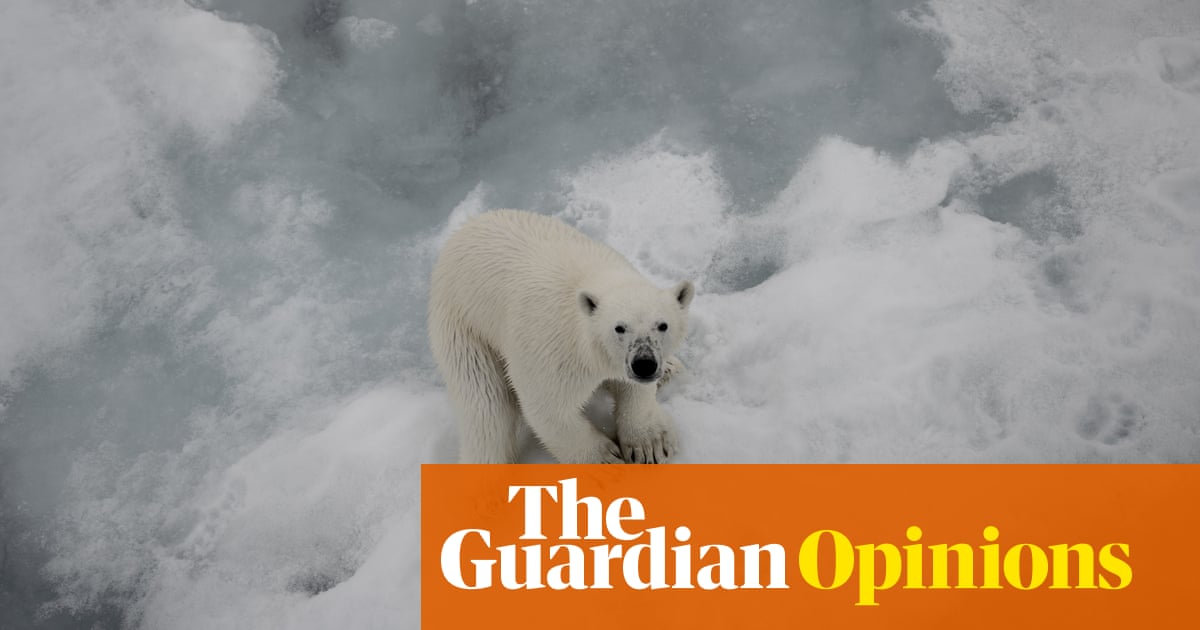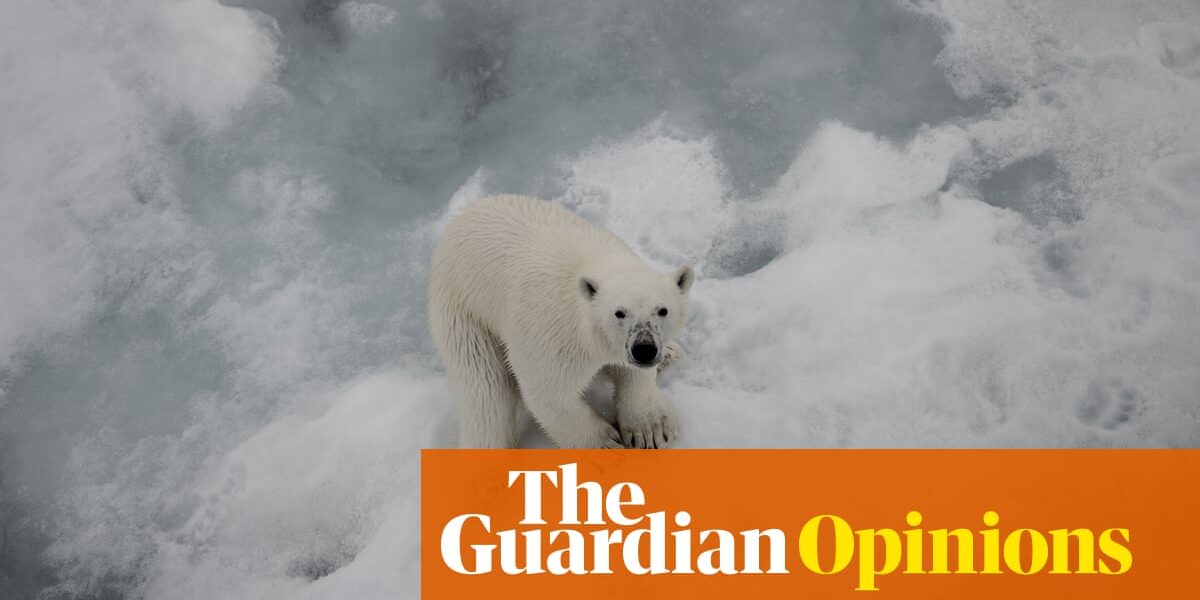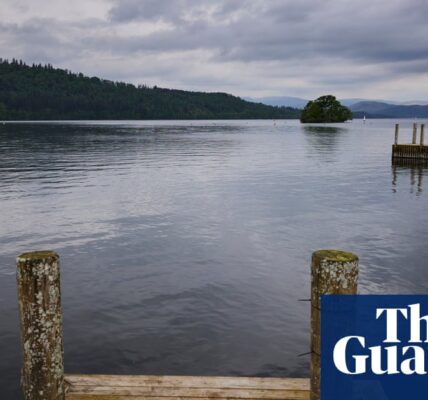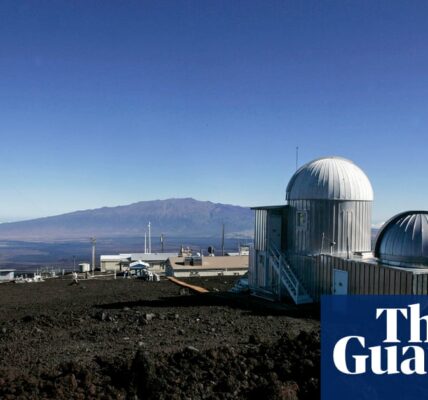Humanity’s survival is still within our grasp – just. But only if we take these radical steps | David King

In 2008, the late American climate scientist Wally Broecker warned of the global repercussions of polar ice loss. Today, his predictions echo louder than ever as Greenland ice haemorrhages at an alarming rate, threatening rapid sea-level rise. Over the past 15 years, the Arctic Circle region has been heating up at four times the global average; it’s now more than 3C above levels in the 1980s. In 2023, we witnessed a staggering loss of Antarctic Sea ice.
Over the past year, land and ocean temperatures have soared, far beyond what was anticipated for an El Niño year. Global average temperatures have breached the 1.5C mark, indicating that climate transition has been unleashed. From record-breaking wildfires across continents to catastrophic floods threatening to submerge major cities, extreme climate events have become the new norm, causing massive loss of life and economic damage worldwide.
Yet despite mounting evidence and urgent pleas, meaningful action falters. Global prosperity has historically emerged from fossil fuels. But the stranglehold of fossil fuel giants, generously subsidised by governments and financially backed by banks, places short-term profits over the planet’s survival. This entrenched dependency stymies efforts to transition to a sustainable future, despite the urgent need for change. GDP growth remains sacred, while climate, biodiversity, health, and social equity are sacrificed, condemning future generations to inherit a ravaged planet.
I say this acutely aware of how making such statements can appear as virtue signalling, particularly to those in the global south, where development is still taking hold. This is not primarily about denying them their pathway, but changing where those of us in the developed world stand – and perhaps our final destination.
On our current path, civilisation as we know it will disappear. If we meet current commitments only – net zero by 2050 – perhaps some form of humanity will survive, managing the challenges of continued extreme weather events, ice loss, and sea-level and temperature rises. But we have agency to change this, and a thriving future is still on the table. To grasp it, we must embark on a radical journey encompassing an essential “4R planet” pathway.
This means: reducing emissions; removing the excess greenhouse gases (GHGs) already in the atmosphere; repairing ecosystems; and strengthening local and global resilience against inevitable climate impacts.
It is absurd to think, as some influential fossil fuel leaders claim, that we can continue our economies based on burning fossil fuels because scientists are finding ways to capture the emissions from continued use. Recent analysis shows that annual global GDP costs due to extreme weather events could rise towards 100% of global GDP around the end of the century.
Meanwhile, the transition away from fossil fuels is already under way, with renewables, hydropower, geothermal energy, distributed energy storage, electric transport and nuclear energy already operating at competitive economic levels. For instance, Kenya has already achieved more than 90% electricity production from renewable sources, an enormous advantage to its economy. The rate of global transition, properly led by government regulations and the removal of subsidies for fossil fuel recovery, could and should be increased tenfold. Implementing the four Rs must be seen as a proper risk management cost, offsetting the very large financial loss figures projected.
Today, the world is emitting over 50bn tonnes of GHGs annually into the atmosphere, expressed as CO2 equivalent. Since we are unlikely to achieve a removal rate exceeding 10bn tonnes per annum, there can be no way forward without reducing emissions to a very small figure.
Today, the GHG level in the atmosphere exceeds 500parts per million (ppm), compared with the pre-industrial level of 275ppm. A safe level for humanity is about 350ppm, so we must remove excess GHGs already in the atmosphere. At about 10-20bn tonnes per annum I estimate it would take to the end of the century. We must start this process immediately.
Additionally, we will need to repair ecosystems to buy time, or else we will be overwhelmed by the consequences of melting polar ice and ice from mountain peaks before GHG levels are reduced sufficiently. Repairing the Arctic Circle will be a major enterprise. Promising processes are under development but are hampered by inadequate funding. Two immediate projects worth supporting are: covering the Arctic Sea with bright white cloud cover during the three months of the north pole summer; and pumping seawater on top of the thin layer of ice formed over the sea in the polar winter to thicken it. These will cost billions of dollars annually, a small fraction of the costs of lives and damage avoided. Deployment of such projects will require global governance and collaboration rarely seen, but if not now, then when? If not for this cause, then for what?
We are already seeing incredible changes around us, leading to the most vulnerable suffering most. Investing to the necessary scale in global resilience, particularly in the global south, will not only improve lives in real time but will also help repair the damaged trust between nations needed for a cohesive climate response.
Funding for the development of the four Rs will fall on advanced and emerging economies. Heads of G20 countries must lead the way. Vision and understanding from our leaders, coupled with a global public demanding more, are essential. Beyond policy changes and investment, a seismic cultural shift is imperative to steer humanity away from self-destruction towards a just and sustainable future. We must realign our political will, economic priorities and societal values to recognise that ecological wellbeing is matched to human wellbeing.
We often hear that in response to the climate crisis, we need to make sacrifices. But this framing is flawed. We must find joy in nurturing what is around us, from nature to the things we own. Fulfilment should come from quality, not quantity, and from nature, not new things.
We are a part of the natural world and depend on it. We can choose to transition our societies into a sustainable period of ecological civilisation. Over the coming decades, as we are faced with a self-inflicted set of global challenges, the need for such a cultural transformation will drive action. This process must begin now.
-
David King is the founder and chair of the global Climate Crisis Advisory Group
Source: theguardian.com




